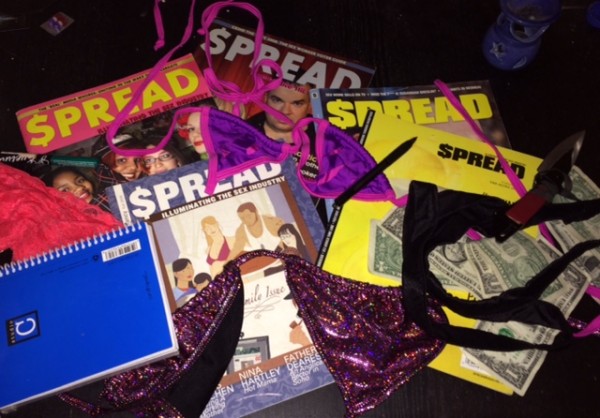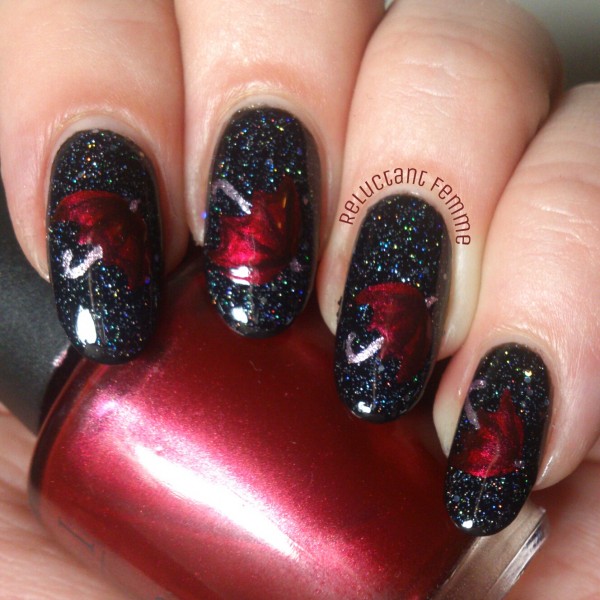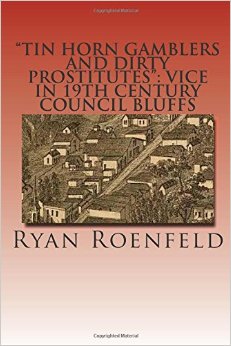We <3 $pread

In honor of International Sex Workers’ Rights Day, the Feminist Press is releasing a retrospective anthology of $pread Magazine today. Current and former Tits and Sass co-editors got together to write about our nostalgic love for the magazine and the way it’s inspired our work.
Bettie, Tits and Sass founding editor emeritus: $pread magazine was walking (gracefully) toward its end when I was a bouncing baby ho, but, gee, what an amazing lil era. For a generation of workers who were lucky enough to see it begin I imagine it felt like what starting Tits and Sass felt like: Exhilarating, frustrating (deadlines are for nerds), and always eye-opening.
Sex worker-created media is a fascinating thing. It’s a lot like us, right? Sometimes hard to pin down, intelligent, always changing, and steady spilling tea you didn’t even know you were thirsty for. This book is as important as the magazine itself and I wish you could still get back issues! $pread existed to remind us that we have to keep telling our stories. No one else can do it for us. Even if they are constantly trying.
Also, $pread taught me that I should pay my taxes, so thanks for keeping the IRS off my ass.
Catherine, Tits and Sass founding editor emeritus, former $pread editor: I remember the first time I heard about $pread, in an article in Bitch, during an era when feminist publications didn’t cover sex work politics with nearly the frequency they do today—or, at least, didn’t include sex workers’ own voices, rather than speaking for us. I had already begun stripping in San Francisco, but was somewhat unfamiliar with the term “sex worker” or the burgeoning media movement. The Bitch article had me fascinated, and I soon found my own copy of $pread in my local indie bookstore.

 I usually regret the rare moments in which I’m prevailed on to cut whorephobes a break. My empathetic nature is almost always taken advantage of in these instances and I’m left feeling as if I’ve been had. As compensation, I exude coolness in interactions with potential whorephobes. It’s come to be the most significant way I protect intimacy and privacy—the first casualties of publicly decrying the treatment of sex workers. So it is with great delicacy that I attempt compassion here in my review of Ryan Roenfeld’s Tin Horn Gamblers and Dirty Prostitutes: Vice in 19th Century Council Bluffs.
I usually regret the rare moments in which I’m prevailed on to cut whorephobes a break. My empathetic nature is almost always taken advantage of in these instances and I’m left feeling as if I’ve been had. As compensation, I exude coolness in interactions with potential whorephobes. It’s come to be the most significant way I protect intimacy and privacy—the first casualties of publicly decrying the treatment of sex workers. So it is with great delicacy that I attempt compassion here in my review of Ryan Roenfeld’s Tin Horn Gamblers and Dirty Prostitutes: Vice in 19th Century Council Bluffs.